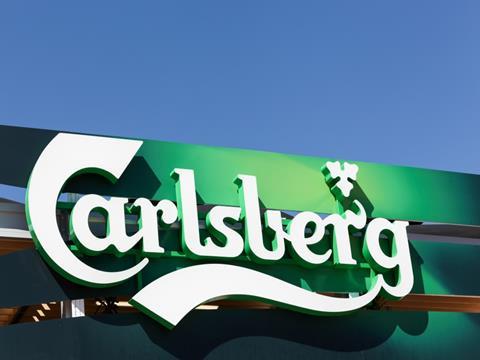
As part of Carlsberg Group’s new ESG programme, the company has highlighted its ambition to make all its bottles and cans fully recyclable by 2030.
It also aims to ensure that 90% of its used packaging is recycled, and that its use of virgin bottle-based plastics is cut by 50%, replaced with the implementation of 50% recycled content. Carlsberg says that the current processing of raw materials alongside the production and disposal of packaging are contributing factors to over 65% of total beer-in-hand emissions, and that the implementation of circular packaging solutions such as recyclable bottles and cans will be a positive step towards reducing their carbon footprint.
It follows in the footsteps of other beverage companies’ pledges of sustainability. Back in 2020, Diageo’s ‘Society 2030: Spirit of Progress’ plan looked towards a 10% reduction in the weight of its packaging and an increase in the amount of recycled content in its packaging to 60%. It set targets of 40% average recycled content in its plastic bottles by 2025 – the figure rising to 100% by 2030 – and if it is not recyclable, it hopes to ensure that all of its packaging is either reusable or compostable within the next three years.
The company claimed to have achieved zero waste to landfill in 2020, and their ongoing Sustainable Solutions programme is reaching out to start-up companies to improve the eco-friendliness of its packaging.
The ‘Circular Making’ branch of Pernod Ricard’s sustainability pledge, announced two years ago, also seeks to halve its carbon emissions by 2030 and achieve net zero by 2050 by reducing the weight of its bottles, increasing its recycled content, reducing carbon emissions in its production lines and eradicating plastic from its labels, caps and secondary packaging.
Last year, Bacardi claimed to be removing 147 tons of single-use plastic from its gift packs by implementing cardboard packaging. It contributed towards the company’s overall goals of eradicating single-use plastic from gift packs and point-of-sale materials by 2023, and plastic altogether by 2030, and sourcing all its key raw materials and packaging sustainably by 2025.
In 2022, Carlsberg Group is joining PepsiCo as it made a time-bound pledge in March to minimise its reliance on single-use packaging, with ideas ranging between refillable bottles and containers, a greater utilisation of make-at-home drinks (PepsiCo acquired SodaStream in 2018) and selling drinks in the form of powders or drops. With the company collaborating with The Boston Beer Company to release an alcoholic variant of the soft drink Mountain Dew earlier this year, it is possible that the pledge will have some impact on the packaging of alcoholic drinks.
Carlsberg Group previously innovated the use of NMP Systems’ MultiPackTM technology by replacing the shrink film used to package Carlsberg drinks with adhesive dots.
We also spoke to the company’s director of sustainability, Simon Boas Hoffmeyer, and asked him questions from our readers about the consumer trials of Carlsberg’s new paper bottles.














No comments yet